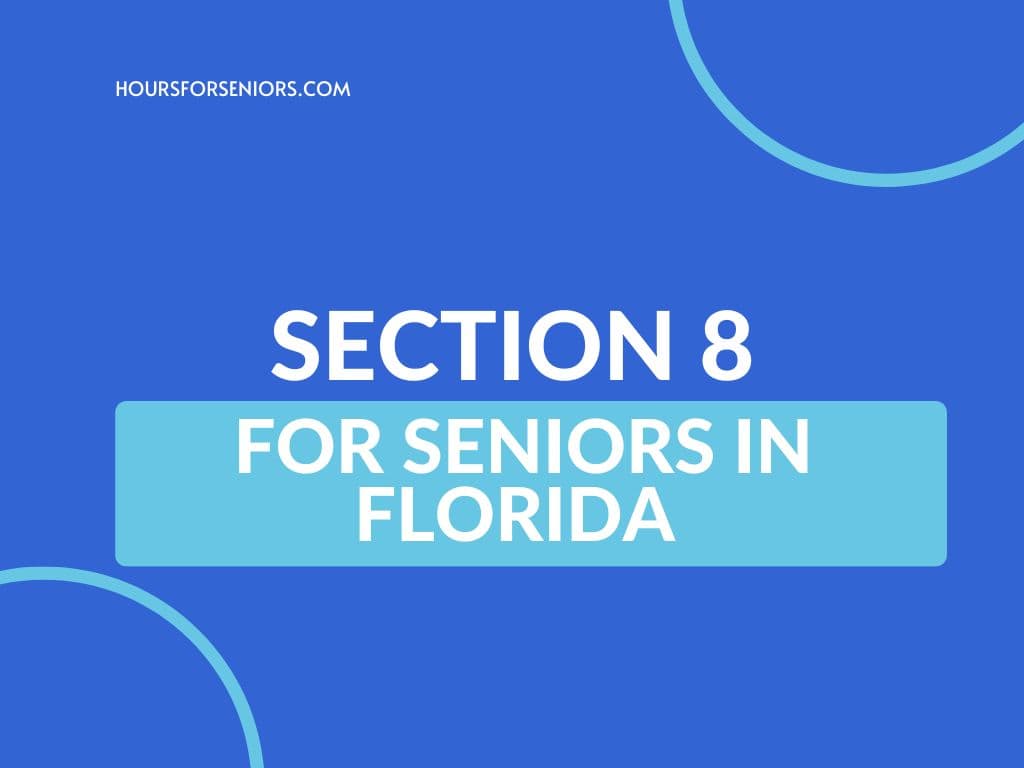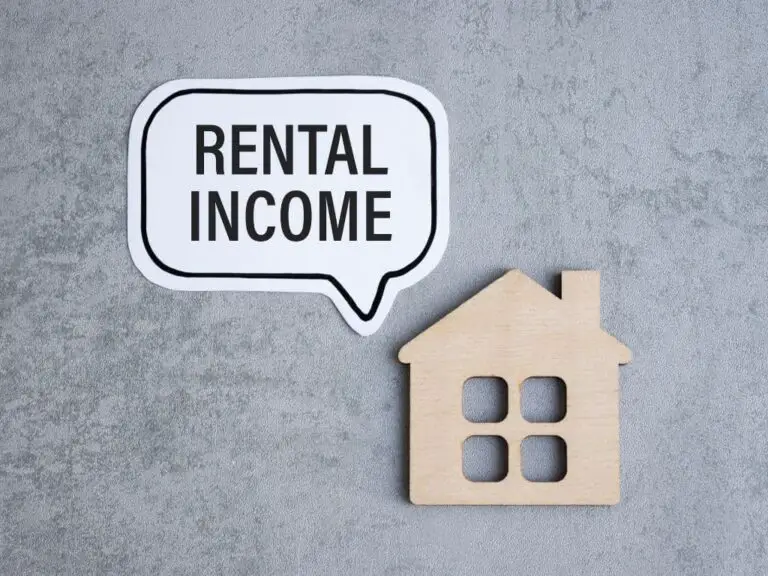Section 8 for Seniors in Florida: Eligibility, Benefits, and How to Apply
Section 8, also known as the Housing Choice Voucher program, offers rent subsidies to low-income seniors in Florida, allowing them to secure safe and affordable housing. This program aims to address the challenges associated with income disparity and housing issues.
Florida’s senior population faces significant housing challenges, with a considerable number grappling with homelessness or spending over half of their income on rent. Unfortunately, limited funding prevents most seniors from receiving federal rental assistance, exacerbating the issue.
However, for those who do receive assistance, the impact is profound. Approximately 20% of individuals benefiting from rental assistance in Florida are seniors, amounting to 91,100 individuals who can age in place comfortably.
Presently, the Housing Choice Voucher program enables seniors to choose any housing that meets the local Public Housing Agency’s (PHA) Housing Quality Standards. Annually, approximately 2 million families benefit from these vouchers, empowering them to move into cleaner and safer neighborhoods.
This freedom facilitates the integration of low-income seniors into their communities, offering proximity to improved schools and employment opportunities.

What is Section 8?
The Housing Choice Voucher Program, commonly referred to as Section 8, is a federal government initiative designed to assist low-income seniors in Florida in accessing affordable housing.
This program provides housing vouchers to eligible individuals and families, enabling them to choose suitable rental units while receiving financial support to cover a portion of their housing costs. It is particularly beneficial for elderly individuals, as it offers flexibility in selecting housing units that accommodate their specific needs and abilities.
The Housing Choice Voucher Program, currently abbreviated as HCVP, is the largest of the three housing assistance programs available and often has open spots for new participants, increasing the likelihood of seniors finding available housing options. To qualify for Section 8 in Florida, seniors must meet specific eligibility requirements, including income limits and other criteria established by the program.
In addition to Section 8, there are alternative low-income housing options available in Florida for seniors who may not qualify or are on the waiting list for the program. These options aim to provide affordable housing solutions and support to seniors in need.
What Are the Eligibility Requirements for Section 8 in Florida?
To qualify for Section 8 housing assistance in Florida, seniors must meet specific eligibility requirements.
These requirements encompass:
- income qualifications,
- household composition,
- criminal background, and
- housing history.
Income Eligibility
Seniors must have a household income below a certain level to qualify for Section 8 assistance. The income limits are established by the U.S. Department of Housing and Urban Development (HUD) and are based on the Area Median Income (AMI) for the specific location.
The AMI represents the midpoint of the income distribution in the area and is adjusted annually to account for inflation. All sources of income for household members, including seniors, are considered when determining eligibility.
Household Composition
The Section 8 program is designed to aid seniors, individuals with disabilities, and families in poverty or at risk of homelessness. To be eligible, a household must include at least one member who is a U.S. citizen or a non-citizen with eligible immigration status.
The Public Housing Authority (PHA) defines a family as either a single individual, a couple without children, or a family with children. The composition of the household is a crucial factor in determining eligibility.
Criminal Background
Seniors applying for Section 8 assistance undergo a review of their criminal background. While having a criminal record does not automatically disqualify applicants, certain criminal activities can render them ineligible. The PHA conducts background checks on all adult household members and evaluates the nature and severity of the crimes, the time since conviction or release from prison, and the individual’s behavior following the offense.
Drug-related and violent criminal activity can potentially disqualify seniors from receiving Section 8 benefits. However, rehabilitation and demonstrating no threat to other residents can mitigate this disqualification.
Housing History
The PHA examines the housing history of senior applicants as part of the eligibility assessment. Previous landlords are contacted, and rental and payment history are reviewed. Instances of eviction, unpaid rent, lease violations, or disruptive behavior may impact eligibility. Having a stable and responsible housing history is essential for seniors applying for Section 8 assistance.
It is important to note that owning a home or having significant assets, being enrolled in college or university full-time, and having a household member who owes money to a PHA or another housing authority can disqualify seniors from receiving Section 8 housing assistance.
What Is the Maximum Income Requirement for Section 8 in Florida?
The maximum income requirement for Section 8 in Florida is listed in the table below.
| Geography | AMI Category | 1 Person Limit ($) | 2 Person Limit ($) | 3 Person Limit ($) | 4 Person Limit ($) |
| Alachua County | 30% | 18210 | 20820 | 23430 | 26010 |
| Baker County | 30% | 18060 | 20640 | 23220 | 25800 |
| Bay County | 30% | 16530 | 18900 | 21270 | 23610 |
| Bradford County | 30% | 13500 | 15420 | 17340 | 19260 |
| Brevard County | 30% | 18060 | 20640 | 23220 | 25800 |
| Broward County | 30% | 20160 | 23040 | 25920 | 28800 |
| Calhoun County | 30% | 13770 | 15720 | 17700 | 19650 |
| Charlotte County | 30% | 16110 | 18420 | 20730 | 23010 |
| Citrus County | 30% | 13770 | 15720 | 17700 | 19650 |
| Clay County | 30% | 18600 | 21240 | 23910 | 26550 |
| Collier County | 30% | 20970 | 23970 | 26970 | 29940 |
| Columbia County | 30% | 14580 | 16650 | 18720 | 20790 |
| DeSoto County | 30% | 13500 | 15420 | 17340 | 19260 |
| Dixie County | 30% | 13500 | 15420 | 17340 | 19260 |
| Duval County | 30% | 18600 | 21240 | 23910 | 26550 |
| Escambia County | 30% | 17190 | 19650 | 22110 | 24540 |
| Flagler County | 30% | 16590 | 18960 | 21330 | 23700 |
| Franklin County | 30% | 13740 | 15720 | 17670 | 19620 |
| Gadsden County | 30% | 18060 | 20640 | 23220 | 25800 |
| Gilchrist County | 30% | 18210 | 20820 | 23430 | 26010 |
| Glades County | 30% | 13500 | 15420 | 17340 | 19260 |
| Gulf County | 30% | 13710 | 15660 | 17610 | 19560 |
| Hamilton County | 30% | 13500 | 15420 | 17340 | 19260 |
| Hardee County | 30% | 13500 | 15420 | 17340 | 19260 |
| Hendry County | 30% | 13500 | 15420 | 17340 | 19260 |
| Hernando County | 30% | 18270 | 20880 | 23490 | 26070 |
| Highlands County | 30% | 13770 | 15720 | 17700 | 19650 |
| Hillsborough County | 30% | 18270 | 20880 | 23490 | 26070 |
| Holmes County | 30% | 13500 | 15420 | 17340 | 19260 |
| Indian River County | 30% | 16650 | 19020 | 21390 | 23760 |
| Jackson County | 30% | 13500 | 15420 | 17340 | 19260 |
| Jefferson County | 30% | 18060 | 20640 | 23220 | 25800 |
| Lafayette County | 30% | 14190 | 16200 | 18240 | 20250 |
| Lake County | 30% | 18450 | 21090 | 23730 | 26340 |
| Lee County | 30% | 17880 | 20430 | 22980 | 25530 |
| Leon County | 30% | 18060 | 20640 | 23220 | 25800 |
| Levy County | 30% | 13500 | 15420 | 17340 | 19260 |
| Liberty County | 30% | 13500 | 15420 | 17340 | 19260 |
| Madison County | 30% | 13500 | 15420 | 17340 | 19260 |
| Manatee County | 30% | 19200 | 21960 | 24690 | 27420 |
| Marion County | 30% | 13830 | 15810 | 17790 | 19740 |
| Martin County | 30% | 17790 | 20340 | 22890 | 25410 |
| Miami-Dade County | 30% | 21690 | 24780 | 27870 | 30960 |
| Monroe County | 30% | 22800 | 26040 | 29310 | 32550 |
| Nassau County | 30% | 18600 | 21240 | 23910 | 26550 |
| Okaloosa County | 30% | 19560 | 22350 | 25140 | 27930 |
| Okeechobee County | 30% | 13500 | 15420 | 17340 | 19260 |
| Orange County | 30% | 18450 | 21090 | 23730 | 26340 |
| Osceola County | 30% | 18450 | 21090 | 23730 | 26340 |
| Palm Beach County | 30% | 20460 | 23400 | 26310 | 29220 |
| Pasco County | 30% | 18270 | 20880 | 23490 | 26070 |
| Pinellas County | 30% | 18270 | 20880 | 23490 | 26070 |
| Polk County | 30% | 15000 | 17160 | 19290 | 21420 |
| Putnam County | 30% | 13500 | 15420 | 17340 | 19260 |
| Saint Johns County | 30% | 18600 | 21240 | 23910 | 26550 |
| Saint Lucie County | 30% | 17790 | 20340 | 22890 | 25410 |
| Santa Rosa County | 30% | 17190 | 19650 | 22110 | 24540 |
| Sarasota County | 30% | 19200 | 21960 | 24690 | 27420 |
| Seminole County | 30% | 18450 | 21090 | 23730 | 26340 |
| Sumter County | 30% | 16740 | 19140 | 21540 | 23910 |
| Suwannee County | 30% | 13500 | 15420 | 17340 | 19260 |
| Taylor County | 30% | 13500 | 15420 | 17340 | 19260 |
| Union County | 30% | 13500 | 15420 | 17340 | 19260 |
| Volusia County | 30% | 16260 | 18600 | 20910 | 23220 |
| Wakulla County | 30% | 17520 | 20040 | 22530 | 25020 |
| Walton County | 30% | 17310 | 19800 | 22260 | 24720 |
| Washington County | 30% | 13500 | 15420 | 17340 | 19260 |
What Are the documentation Requirements for Section 8 in Florida?
To apply for Section 8 housing assistance in Florida, seniors need to provide specific documents that demonstrate their eligibility and support their application. These documents play a crucial role in determining the voucher amount and verifying income, assets, and family size/composition.
Here are the documentation requirements for seniors applying for Section 8 housing assistance in Florida:
Proof of Citizenship or Immigration Status
Seniors who are U.S. citizens need to submit a valid passport or birth certificate.
Non-U.S. citizen seniors must provide their immigration papers, such as registered immigrant or alien documentation, along with a signed verification of immigrant status.
Personal Identification
All seniors must provide copies of government-issued IDs, such as driver’s licenses or state-issued photo IDs, for each household member.
Income Verification
Seniors need to present proof of income, which may include pay stubs, W-2 forms, and tax returns.
Social Security recipients should provide a Social Security Verification Letter and proof of benefits.
Documentation of any public assistance benefits received should also be submitted.
Asset Information
Seniors must provide information on any assets they own, such as bank statements and details of other property ownership.
Rental Agreement
A copy of the current rental agreement is required to verify the housing arrangement.
It is essential for seniors to respond promptly to any requests for additional information or supporting documentation from their Public Housing Authority (PHA) to ensure a smooth and expedited processing of their application.
The PHA will verify the provided information through local agencies, employers, and banks to determine eligibility and the corresponding voucher payment amount.
What Are the Benefits of Section 8 For Seniors in Florida?
In Florida, the housing market has experienced a resurgence, with single-family home prices reaching levels comparable to the mid-2000s boom era. From 2011 to 2022, the median single-family home price in the state rose by 91%, adjusted for inflation, reaching $385,000 in 2022.
However, despite this growth, there are significant challenges faced by low-income renters, particularly senior citizens, in accessing affordable housing.
Florida witnessed an increase of nearly 600,000 rental units with gross rents above $1,000 between 2012 and 2021. Conversely, there was a loss of approximately 277,000 rental units renting for $1,000 or less during the same period. This trend highlights the shrinking availability of affordable housing options for low-income individuals, including seniors.
825,990 low-income renters in Florida, who fall below 60% of the Area Median Income (AMI), are burdened by paying more than 40% of their income towards housing expenses. This significant cost burden restricts their ability to meet other basic needs and hinders financial stability.
The scarcity of affordable rental units for households with incomes ranging from 0-30% of the AMI is a pressing issue in Florida. Currently, the state has only 26 affordable and available rental units for every 100 households falling into this income bracket. This shortage amounts to a deficit of 398,715 units, leaving many seniors struggling to find suitable housing options.
To address these challenges, the Housing Choice (Section 8) Voucher Program plays a crucial role in supporting low-income seniors in Florida. This federal program offers rent subsidies to eligible families, enabling them to secure safe and affordable housing.
By alleviating the financial burden of housing costs, the program aims to mitigate the negative consequences of income disparity and help seniors find stable living conditions.
Unlike earlier housing assistance programs that confined participants to low-income housing projects, the Housing Choice Voucher program allows seniors to choose any housing that meets the quality standards set by local Public Housing Agencies (PHAs). This flexibility empowers seniors to select homes in neighborhoods that offer better amenities, access to essential services, and improved opportunities for education and employment.
Apart from the direct monetary value provided by vouchers, the program offers a range of intrinsic benefits for seniors and their communities.
Below is a list of benefits for seniors using Section 8 housing in Florida.
Benefits of Section 8 for Seniors in Florida:
- Affordable and secure housing: Section 8 provides rent subsidies to low-income seniors in Florida, enabling them to live in affordable and safe housing. This addresses the challenges associated with income disparities among seniors.
- Housing choice and improved living conditions: The current Section 8 program allows seniors to choose housing that meets the Housing Quality Standards set by their local Public Housing Agency (PHA). This empowers seniors to move into cleaner and safer neighborhoods, thereby enhancing their overall living conditions.
- Integration into communities: Section 8 vouchers facilitate the integration of low-income seniors into Florida cities, bringing them closer to better schools, job opportunities, and community resources. By meeting their basic shelter needs, the program supports seniors in finding work, accessing public services, and improving their overall quality of life.
- Access to public benefits: Seniors participating in the Section 8 program often gain increased access to other public services for which they are eligible, such as welfare or food stamps. The application process and relocation to a new neighborhood can notify and connect seniors with various support programs, contributing to their overall well-being.
- Improved educational opportunities for grandchildren: Section 8 vouchers can provide improved educational opportunities for the grandchildren of senior recipients. By residing in neighborhoods with better schools, children in the program have the potential for longer school attendance and higher academic achievement.
- Enhanced health outcomes: Section 8 ensures that seniors use vouchers for housing that meets strict Housing Quality Standards, protecting them from unhealthy living conditions. Relocating to better neighborhoods and suitable homes can lead to improved mental and physical health outcomes. Additionally, proximity to health professionals often increases as families move to new areas.
- Reduction in crime and substance abuse: Seniors and their families participating in the Section 8 Voucher program have observed reductions in crime and substance abuse. The program’s increased opportunities and improved living conditions help alleviate stressors that contribute to such behaviors, fostering a safer and more supportive environment for seniors.
- Freedom of housing choice for improved well-being: The Section 8 program offers seniors in Florida the freedom to choose housing that best suits their needs, breaking away from historical clustering in low-income, segregated neighborhoods. This promotes dispersal into lower-poverty and less racially segregated areas, ultimately improving their well-being.
- Neighborhood diversity and reduced poverty rates: Section 8 vouchers in Florida have facilitated wider dispersal and lower poverty rates for assisted senior households. By allowing seniors to access housing in various neighborhoods, the program contributes to reduced concentrated poverty and racial segregation. Seniors have the opportunity to live in more diverse and inclusive communities, fostering social integration and well-rounded experiences.
The advantages include increased access to public benefits, better educational opportunities for children, improved physical and mental health due to healthier living conditions, and a reduction in crime and substance abuse.
What Are the Maximum Rents Allowed In Florida Under Section 8?
In Florida, the maximum rents allowed under Section 8 for seniors vary based on location, unit size, and other factors. The Department of Housing and Urban Development (HUD) determines the fair market rent (FMR) annually, which serves as a benchmark for rental costs in different regions.
Below is a table of maximum rents for seniors under Section 8 in Florida.
| Geography | AMI Category | 0 Bedroom Limit ($) | 1 Bedroom Limit ($) | 2 Bedroom Limit ($) | 3 Bedroom Limit ($) | 4 Bedroom Limit ($) |
| Alachua County | 30% | 455 | 487 | 585 | 676 | 754 |
| Baker County | 30% | 451 | 483 | 580 | 670 | 748 |
| Bay County | 30% | 413 | 442 | 531 | 613 | 684 |
| Bradford County | 30% | 337 | 361 | 433 | 501 | 558 |
| Brevard County | 30% | 451 | 483 | 580 | 670 | 748 |
| Broward County | 30% | 504 | 540 | 648 | 748 | 835 |
| Calhoun County | 30% | 344 | 368 | 442 | 511 | 570 |
| Charlotte County | 30% | 402 | 431 | 518 | 598 | 667 |
| Citrus County | 30% | 344 | 368 | 442 | 511 | 570 |
| Clay County | 30% | 465 | 498 | 597 | 690 | 770 |
| Collier County | 30% | 524 | 561 | 674 | 778 | 868 |
| Columbia County | 30% | 364 | 390 | 468 | 540 | 603 |
| DeSoto County | 30% | 337 | 361 | 433 | 501 | 558 |
| Dixie County | 30% | 337 | 361 | 433 | 501 | 558 |
| Duval County | 30% | 465 | 498 | 597 | 690 | 770 |
| Escambia County | 30% | 429 | 460 | 552 | 638 | 711 |
| Flagler County | 30% | 414 | 444 | 533 | 616 | 687 |
| Franklin County | 30% | 343 | 368 | 441 | 510 | 569 |
| Gadsden County | 30% | 451 | 483 | 580 | 670 | 748 |
| Gilchrist County | 30% | 455 | 487 | 585 | 676 | 754 |
| Glades County | 30% | 337 | 361 | 433 | 501 | 558 |
| Gulf County | 30% | 342 | 367 | 440 | 508 | 567 |
| Hamilton County | 30% | 337 | 361 | 433 | 501 | 558 |
| Hardee County | 30% | 337 | 361 | 433 | 501 | 558 |
| Hendry County | 30% | 337 | 361 | 433 | 501 | 558 |
| Hernando County | 30% | 456 | 489 | 587 | 678 | 756 |
| Highlands County | 30% | 344 | 368 | 442 | 511 | 570 |
| Hillsborough County | 30% | 456 | 489 | 587 | 678 | 756 |
| Holmes County | 30% | 337 | 361 | 433 | 501 | 558 |
| Indian River County | 30% | 416 | 445 | 534 | 618 | 689 |
| Jackson County | 30% | 337 | 361 | 433 | 501 | 558 |
| Jefferson County | 30% | 451 | 483 | 580 | 670 | 748 |
| Lafayette County | 30% | 354 | 379 | 456 | 526 | 587 |
| Lake County | 30% | 461 | 494 | 593 | 685 | 764 |
| Lee County | 30% | 447 | 478 | 574 | 664 | 741 |
| Leon County | 30% | 451 | 483 | 580 | 670 | 748 |
| Levy County | 30% | 337 | 361 | 433 | 501 | 558 |
| Liberty County | 30% | 337 | 361 | 433 | 501 | 558 |
| Madison County | 30% | 337 | 361 | 433 | 501 | 558 |
| Manatee County | 30% | 480 | 514 | 617 | 713 | 795 |
| Marion County | 30% | 345 | 370 | 444 | 513 | 573 |
| Martin County | 30% | 444 | 476 | 572 | 660 | 737 |
| Miami-Dade County | 30% | 542 | 580 | 696 | 805 | 898 |
| Monroe County | 30% | 570 | 610 | 732 | 846 | 944 |
| Nassau County | 30% | 465 | 498 | 597 | 690 | 770 |
| Okaloosa County | 30% | 489 | 523 | 628 | 726 | 810 |
| Okeechobee County | 30% | 337 | 361 | 433 | 501 | 558 |
| Orange County | 30% | 461 | 494 | 593 | 685 | 764 |
| Osceola County | 30% | 461 | 494 | 593 | 685 | 764 |
| Palm Beach County | 30% | 511 | 548 | 657 | 759 | 847 |
| Pasco County | 30% | 456 | 489 | 587 | 678 | 756 |
| Pinellas County | 30% | 456 | 489 | 587 | 678 | 756 |
| Polk County | 30% | 375 | 402 | 482 | 557 | 621 |
| Putnam County | 30% | 337 | 361 | 433 | 501 | 558 |
| Saint Johns County | 30% | 465 | 498 | 597 | 690 | 770 |
| Saint Lucie County | 30% | 444 | 476 | 572 | 660 | 737 |
| Santa Rosa County | 30% | 429 | 460 | 552 | 638 | 711 |
| Sarasota County | 30% | 480 | 514 | 617 | 713 | 795 |
| Seminole County | 30% | 461 | 494 | 593 | 685 | 764 |
| Sumter County | 30% | 418 | 448 | 538 | 621 | 693 |
| Suwannee County | 30% | 337 | 361 | 433 | 501 | 558 |
| Taylor County | 30% | 337 | 361 | 433 | 501 | 558 |
| Union County | 30% | 337 | 361 | 433 | 501 | 558 |
| Volusia County | 30% | 406 | 435 | 522 | 603 | 673 |
| Wakulla County | 30% | 438 | 469 | 563 | 650 | 726 |
| Walton County | 30% | 432 | 463 | 556 | 642 | 717 |
| Washington County | 30% | 337 | 361 | 433 | 501 | 558 |
Note: Section 8 payments may not cover the entire rental cost, and seniors may be responsible for a portion of the rent. To make the most of their Section 8 benefits, seniors should seek affordable housing options below the FMR.
How Is Section 8 Adjusted for Inflation in Florida?
In Florida, the Section 8 program, which provides rental assistance to seniors, is adjusted for inflation to ensure affordability. The adjustments are made based on the changes in the U.S. Department of Housing and Urban Development (HUD) income limits. The HUD income limits for 2023 were released later than in previous years, with a target date of May 15. This delay was due to HUD’s use of the 2021 American Community Survey (ACS) data instead of the 2020 ACS data.
The 2021 ACS data, collected throughout the year, reflects the lingering impact of COVID-19 on income levels. At the national level, there was a 6.19% increase in median income over the two-year period from 2019 to 2021, equivalent to approximately 3% per year. However, the impact of the pandemic varied across different areas, with some experiencing larger increases, possibly due to transplants moving into the region or minimal impact on wage earners around the median income level.
One of the key factors driving the increases in income limits for 2023 is the continued rise in the Consumer Price Index (CPI). Although the ACS data suggests a modest annual increase of around 3%, when factoring in the CPI trend factor, the national median income for 2023 is estimated to rise by 4.78% from $90,000 in 2022 to $94,300 in 2023.
While the overall outlook for income limits appears positive, it’s important to note that some areas in Florida may experience decreases in income limits from 2022 to 2023, affecting both new and existing projects. Conversely, more than 45% of areas are estimated to have an increase of over 7.5% during the same period.
The cap on increases in very low-income (VLI) limits is set by HUD. Traditionally, the cap is determined by the greater of 105% of the previous year’s VLI limit or twice the rate of change in the national median family income estimate, capped at 5%.
For 2022, the cap was set at 11.89%, measured from the change in national median income based on the 2018 to 2019 ACS data. For 2023, it remains uncertain whether HUD will follow the pre-2022 methodology or measure the cap based on the ACS level, as there is no comparable 2020 ACS data available.
Looking ahead to 2024, HUD will need to decide whether to use the 2021 ACS data again or switch to the 2022 ACS data. If the same ACS data is used, it would be trended for an additional year using the CPI estimate for 2024, resulting in a change in median income. This approach was previously employed in 2011 and 2012 when the same ACS data was used due to a short turnaround time.
Inflation adjustments ensure that the rental assistance provided keeps pace with rising costs and changes in median income, providing support to those in need.
What Is the Waiting List Process for Section 8 in Florida?
The Section 8 waiting list process in Florida for seniors is influenced by various factors, including:
- the demand for housing vouchers,
- funding availability, and
- the efficiency of local housing authorities.
Due to the limited resources available, waiting periods can be lengthy. In fact, a public housing agency (PHA) may close its waiting list when there are more families seeking assistance than can be accommodated in the near future.
To select applicants from the waiting list, PHAs in Florida can establish local preferences that reflect the housing needs and priorities of the community. These preferences may give priority to seniors who are homeless, living in substandard housing, paying more than 50% of their income for rent, or involuntarily displaced.
Seniors who qualify for any of these preferences are prioritized over others on the waiting list who do not meet the criteria.
The waiting time for Section 8 housing vouchers in Florida can vary significantly depending on the population density and demand for assistance. To estimate the waiting time for a Section 8 voucher in Florida, seniors can refer to the PHA’s Annual Plan, which provides information on the number of households on the waiting list and the annual turnover rate.
By dividing the number of households on the waiting list by the annual turnover rate, seniors can get an approximate idea of the waiting period.
While waiting for a Section 8 voucher, seniors should stay attentive to notices and requests from the housing authority. Failure to respond to these requests may result in losing their spot on the waiting list.
It’s important for seniors to understand that being placed on the waiting list does not guarantee immediate rental assistance. Only after completing an eligibility interview and meeting all requirements will seniors receive a Section 8 voucher.
What Are the Utility Assistance Programs Available Under Section 8 in Florida?
Florida offers utility assistance programs under Section 8 to support low-income seniors with their home heating and cooling costs. The primary program available is the Low-Income Home Energy Assistance Program (LIHEAP). LIHEAP provides grants to local governments and non-profit agencies to help eligible low-income households in Florida manage their energy expenses. The program offers three categories of assistance tailored to specific needs.
The first category is home energy assistance, which aims to alleviate the burden of regular energy costs. Seniors who struggle with high utility bills can receive financial aid through this program.
The second category is crisis assistance, which provides support during emergency situations such as service disconnections or impending shut-offs. Seniors facing immediate energy-related crises can seek assistance through this category.
Lastly, there is weather-related or supply shortage energy crisis assistance, which offers aid during severe weather conditions or energy supply disruptions.
To qualify for these utility assistance programs, senior residents of Florida must demonstrate a need for financial support in covering their home energy expenses. Eligibility can be met if the senior or their family members participate in certain benefit programs like SNAP, SSI, or TANF.
To apply for utility assistance, seniors should reach out to their local LIHEAP provider. The agency’s contact information can be found by locating the name of the county where they reside. Seniors should contact the agency in their respective county to obtain an application and receive guidance throughout the application process.
What Are the Rules and Regulations of the Section 8 Program in Florida?
As a resident of a HUD-assisted multifamily housing property, it is important to understand your rights and responsibilities.
Your rights include the following regarding your apartment:
- the right to live in decent, safe, and sanitary housing free from environmental hazards such as lead-based paint
- the right to timely repairs upon request
- the right to receive written notice for non-emergency inspections or entry into your apartment
- the right to protection from eviction except for specified causes in your lease
- the right to request rent recalculations if your income decreases and
- the right to access your tenant file.
Regarding resident organizations, you have the right to organize without obstruction, harassment, or retaliation from property owners or management. You can provide information to other residents about their rights and opportunities in common areas, use appropriate spaces to organize meetings, meet without owner/management representatives present, and be recognized as having a voice in community affairs.
In terms of nondiscrimination, you have the right to equal and fair treatment in using the services and facilities of your building, regardless of factors such as race, color, religion, gender, sexual orientation, gender identity, disability, familial status, national origin, or age in certain circumstances.
As a resident, you also have responsibilities to maintain a suitable living environment. These include:
- complying with your lease, house rules, and local laws
- paying rent on time
- providing accurate information to the owner/management regarding income and composition
- reporting changes in income or family composition promptly
- conducting yourself in a manner that does not disturb neighbors
- refraining from criminal activity
- keeping your apartment and common areas clean and free of hazards
- disposing of waste properly and
- reporting any environmental hazards or defects in the apartment or facilities.
Regarding your involvement in decisions affecting your home, different HUD programs provide specific resident rights. You have the right to know which program your building is assisted under and be notified or comment on actions such as nonrenewal of a Section 8 contract, rent increases, conversions or transfers of the property, and other significant changes that could impact your residence.
For landlords and tenants participating in the Section 8 program, there are certain guidelines to follow. Landlords are responsible for screening tenants, conducting background and credit checks, and passing a Section 8 inspection.
Discrimination against Section 8 renters is not allowed. Tenants have the right to be treated equally under the Fair Housing Act, and any violations should be reported to HUD.
When there are changes in income or family composition, it is crucial to report them in writing within a specified timeframe. Failure to report changes may result in termination of assistance or the need to repay overpaid amounts.
The reporting process may vary depending on the location, but generally, it involves submitting a change of circumstance form and providing necessary documentation.






